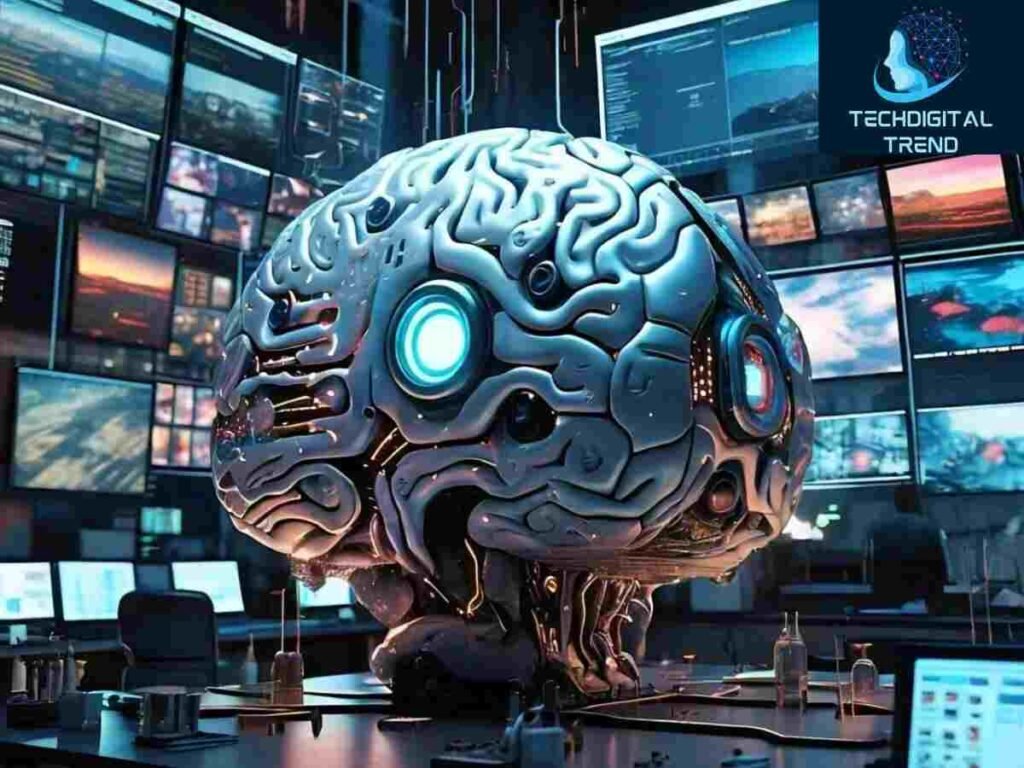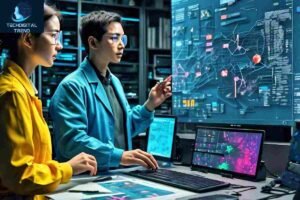Table of Contents
ToggleUnlocking the Secrets
Artificial intelligence (AI) has advanced dramatically in recent years, changing many facets of our life. From personalized recommendations on streaming platforms to autonomous vehicles navigating city streets, AI is becoming increasingly integrated into our daily routines. This article delves into the latest achievements of artificial intelligence, unlocking the secrets behind its rapid advancement and its impact on society.
Understanding Artificial Intelligence
The mechanical simulation of human thought processes, particularly in computer systems, is known as artificial intelligence (AI). It includes activities like learning, thinking, and solving problems.
Types of Artificial Intelligence
There are two main types of AI: narrow AI, which is designed for specific tasks, and general AI, which possesses human-like intelligence and can perform any intellectual task that a human can.
Key Concepts in AI
Key concepts in AI include machine learning, which enables systems to learn from data and improve over time, and natural language processing (NLP), which allows machines to understand and generate human language.
Current Applications of AI in Healthcare
AI is revolutionizing healthcare by assisting in medical diagnosis, predicting patient outcomes, and personalizing treatment plans based on individual patient data.
AI in Finance
In finance, AI is used for fraud detection, algorithmic trading, and risk assessment, helping financial institutions make more informed decisions and mitigate risks.
AI in Transportation
Autonomous vehicles powered by AI are reshaping transportation, offering safer and more efficient modes of travel while reducing accidents and congestion on roads.
AI in Entertainment
In the entertainment industry, AI is utilized for content recommendation, content creation, and virtual reality experiences, enhancing user engagement and satisfaction.
Cutting-edge Technologies unlocking the secrets
Machine learning algorithms enable computers to learn from data and make predictions or decisions without being explicitly programmed, driving advancements in AI across various domains.
Natural Language Processing (NLP)
NLP enables computers to understand, interpret, and generate human language, facilitating applications such as virtual assistants, language translation, and sentiment analysis.
Computer Vision Unlocking the Secrets
Computer vision systems enable computers to interpret and analyze visual information from the real world, powering applications like facial recognition, object detection, and autonomous vehicles.
Robotics
AI-driven robotics are transforming industries by automating tasks in manufacturing, healthcare, and agriculture, increasing efficiency and productivity while reducing manual labor.
Challenges and Ethical Considerations
Data Privacy
The use of personal data in AI systems raises concerns about privacy, security, and the potential for misuse or unauthorized access.
Bias in AI Algorithms
AI algorithms can perpetuate or amplify existing biases present in training data, leading to unfair outcomes or discrimination against certain groups.
Job Displacement
The automation of jobs by AI and robotics has the potential to displace human workers, raising questions about the future of employment and the need for reskilling and upskilling initiatives.
Ethical Use of AI
Ensuring the ethical use of AI requires the development and implementation of responsible AI frameworks, guidelines, and regulations to address issues such as transparency, accountability, and algorithmic fairness.
AI Trends Unlocking the Secrets
Emerging trends in AI include the integration of AI with other transformative technologies like blockchain and the Internet of Things (IoT), as well as advancements in autonomous systems and human-AI collaboration.
Potential Impact on Industries
AI is poised to disrupt and transform industries such as healthcare, finance, transportation, and manufacturing, creating new opportunities for innovation and economic growth.
Ethical Frameworks for AI Development
Developing ethical frameworks and guidelines for AI development and deployment is essential to ensure that AI technologies are developed and used in ways that benefit society while minimizing potential risks and harms.
Conclusion
Artificial intelligence continues to push the boundaries of innovation, transforming industries and redefining human capabilities. While its potential is vast, it is crucial to address the ethical and societal implications that accompany its rapid advancement. By unlocking the secrets of artificial intelligence and embracing responsible development practices, we can harness its power for the betterment of humanity. This article delves into the latest achievements of artificial intelligence, unlocking the secrets behind its rapid advancement and its impact on society.
Open this link: tap to here
















